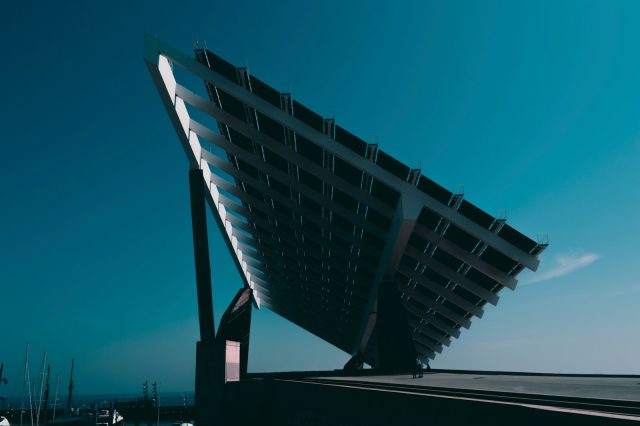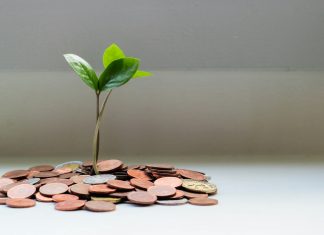
Las Vegas is uniquely positioned to benefit from solar energy, with abundant sunshine offering a practical solution to rising electric bills and concerns about grid reliability. For local businesses, the transition to renewable energy isn’t just about cost savings—it’s a strategic move toward sustainability. Solar panel systems provide a compelling opportunity to reduce expenses while supporting environmental goals, making them an increasingly popular choice among companies in the region.
However, adopting solar energy requires careful consideration of various factors beyond the initial financial investment. Operational efficiency, consumer expectations, and the broader return on investment (ROI) all influence the decision. By evaluating electric costs, power outages, tax incentives, long-term savings, and environmental impacts, businesses in Las Vegas can align their energy strategies with both economic and sustainability objectives.
Combatting Rising Energy Costs
Recent data shows that electric bills for Nevada businesses have risen by 30% since 2019, putting significant pressure on operating budgets. For instance, a typical Las Vegas retail store that spent $2,000 monthly on electricity in 2019 now faces bills exceeding $2,600 per month. These rising costs point to the importance of finding energy solutions that are both sustainable and practical. Businesses in sectors like hospitality and entertainment, which dominate the Las Vegas economy, face particular challenges due to their high energy demands.
Adopting solar energy offers a practical way to reduce expenses. Las Vegas businesses benefit from the city’s 310 sunny days per year with the expertise offered by solar panel companies, helping them generate substantial energy savings. For example, a mid-sized business installing a 100-kW solar system can save an average of $12,000 annually on energy costs. Solar energy also helps shield businesses from price hikes while supporting energy independence.
Improving Energy Reliability
Reliable energy is vital for businesses, especially as power outages have increased by 38% since 2019. These disruptions lead to lost revenue and reduced customer trust. Finding reliable energy alternatives is essential for companies aiming to maintain smooth operations. Solar panel systems provide renewable energy and improve energy security, reducing reliance on the unpredictable grid.
Solar energy gives businesses greater control over their energy supply, reducing the impact of grid failures. Generating their own electricity allows companies to keep operating during peak demand periods and outages. This increased reliability makes solar systems a practical choice for businesses looking to enhance energy stability while embracing sustainability.
Leveraging Tax Incentives
Generous tax incentives make solar projects more affordable for Nevada businesses, with credits covering up to 60% of project costs. These incentives significantly reduce the initial investment, making solar panel installation a more realistic option. Lower upfront costs free up resources for other priorities.
Tax credits also improve the ROI for solar projects by reducing financial strain and enabling faster recovery of initial expenses. Businesses benefit from long-term savings on energy bills and align with sustainability goals, enhancing their market position in an increasingly eco-conscious environment.
Unlocking Long-Term Financial Stability
Long-term savings are a key advantage of solar panel systems. As electricity prices rise, solar energy offers predictable costs that make budgeting easier. Businesses can plan better with consistent energy expenses, reducing stress on their finances.
Lower energy bills allow businesses to redirect funds toward growth, such as hiring, expanding, or upgrading technology. This strategic choice strengthens financial stability and fosters innovation. In a growing city like Las Vegas, investing in solar energy positions businesses for sustainable success.
Environmental Impact: A Responsibility and an Advantage
Solar panel systems provide significant environmental benefits, including reduced carbon footprints by decreasing reliance on fossil fuels. For instance, a typical commercial solar installation can offset hundreds of tons of CO2 annually, equivalent to planting thousands of trees. Adopting solar energy demonstrates a tangible commitment to combating climate change, appealing to eco-conscious consumers who actively seek out sustainable businesses.
Aligning with sustainable practices not only meets consumer demands but also builds loyalty. Companies emphasizing eco-friendly initiatives often enjoy stronger customer retention and attract environmentally driven partnerships, further enhancing long-term growth and resilience.
Rising energy costs and frequent outages highlights the importance of a dependable energy strategy for Las Vegas businesses. Solar panel systems offer a clear path to financial savings and environmental stewardship. Businesses that adopt solar energy not only reduce costs but also demonstrate resilience and sustainability. This transition provides a competitive advantage in a market increasingly focused on eco-conscious practices. To move forward, companies should evaluate their energy needs, explore available tax incentives, and consider solar energy as a long-term investment for growth and stability.


![Finsea24 Review: A Data-Driven Platform for Smarter Decisions [finsea24.com]](https://jt.org/wp-content/uploads/2025/11/word-image-31471-1-e1764053448654-218x150.png)







